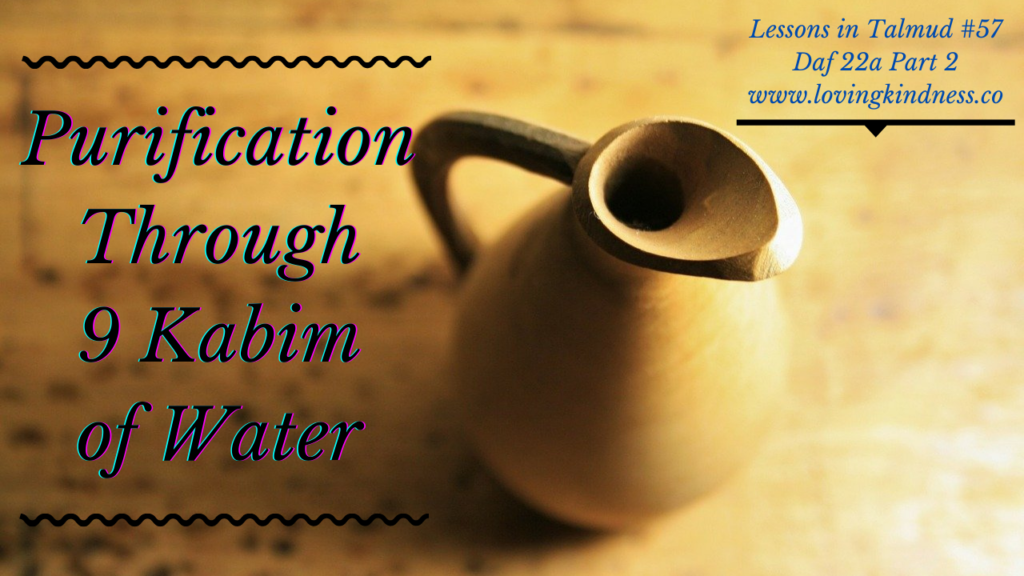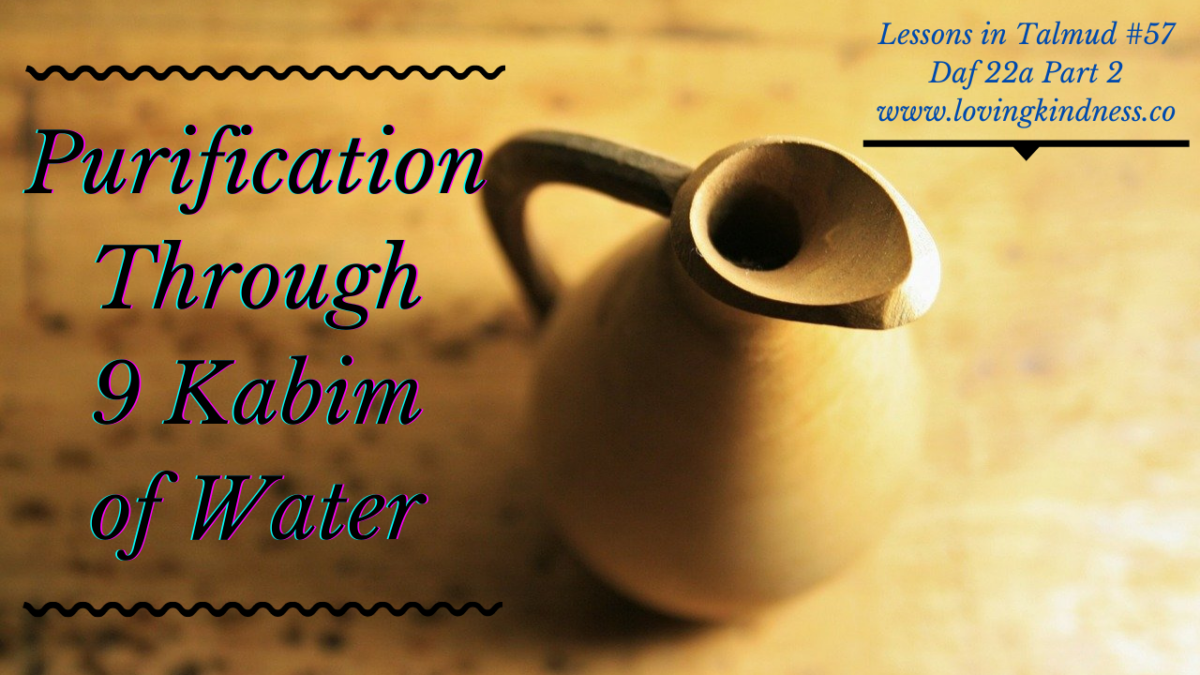
In our lesson in Talmud Brachot today – Daf 22a, we are taught that we follow three rabbis with regards to three particular things. In matter of shearing the first sheep, we follow according to Rabbi Ilai. In matters pertaining to Kilayim – sowing forbidden mixtures together (or in other words, not being permitted to sow these mixtures) we follow Rabbi Yoshiya. And in matters pertaining to Torah, we follow Rabbi Yehuda bar Ilai – who we already know has taught us that the words of Torah do not become impure (even if they are studied by somebody in a state of ritual impurity.)
When Zeira came from Eretz Yisrael to Bavel, he taught that they had cancelled the issue of having to immerse in a Mikvah after the ritual impurity of Keri. Some say he said the cancelled the issue of washing one’s hands before prayer.
The Talmud continues to discuss the topic of purification for a Baal Keri. Here it speaks about another well-known way of purification. It is concerned with the pouring out of 9 Kabim of water upon a person. Instead of immersing in a Mikvah of 40 Seah, one can also have 9 Kabim of water poured upon one and it effects purification for the Baal Keri.
There is much debate surrounding the topic of the 9 Kabim of water, and the Gemara goes into the various details of its permissibility and to whom it applies. Where did this custom come from, and what did the rabbis really have to say about it?
We learn about the importance of purification in general and of even going to a Mikvah every single morning.
Rav Nachman produced a jug that held 9 Kabim in order to affect the purpose of purification without having to go to a Mikvah. The Gemara debates its applicability and whether it could really be used.


